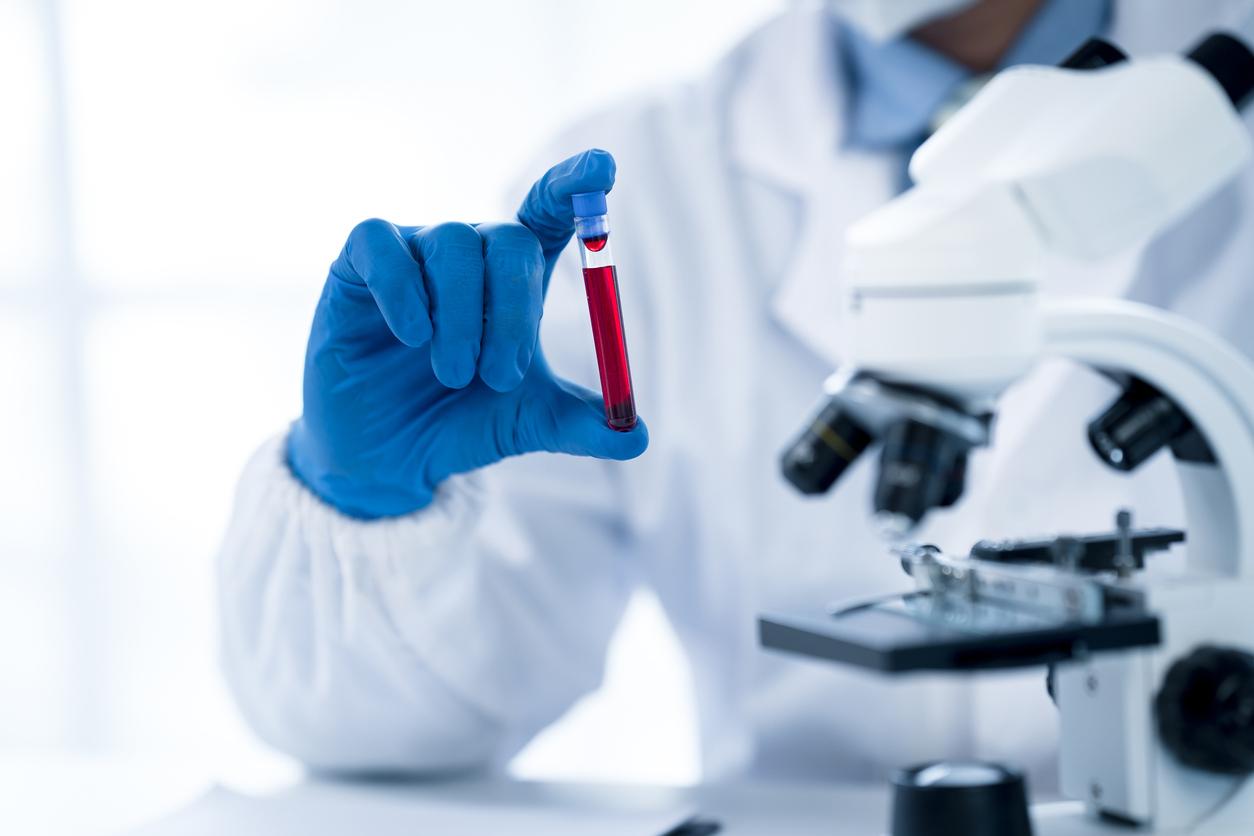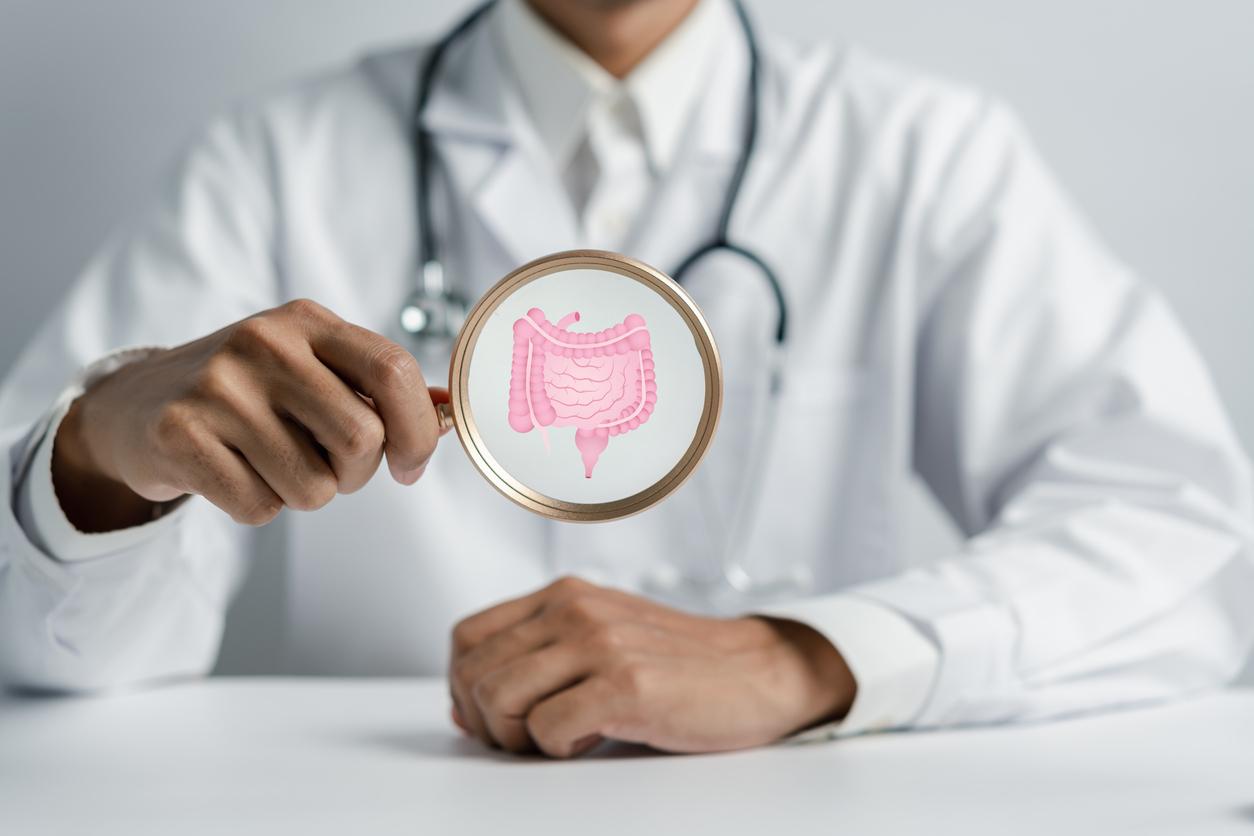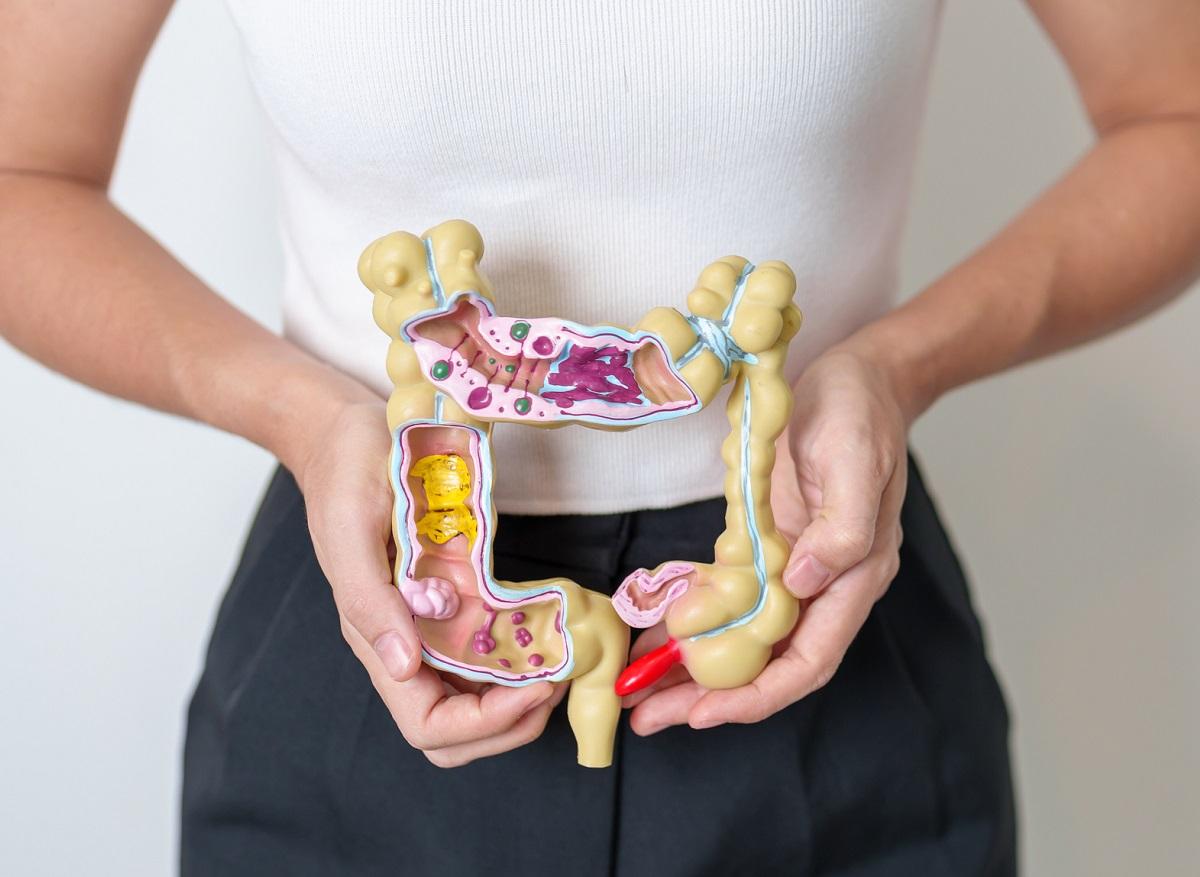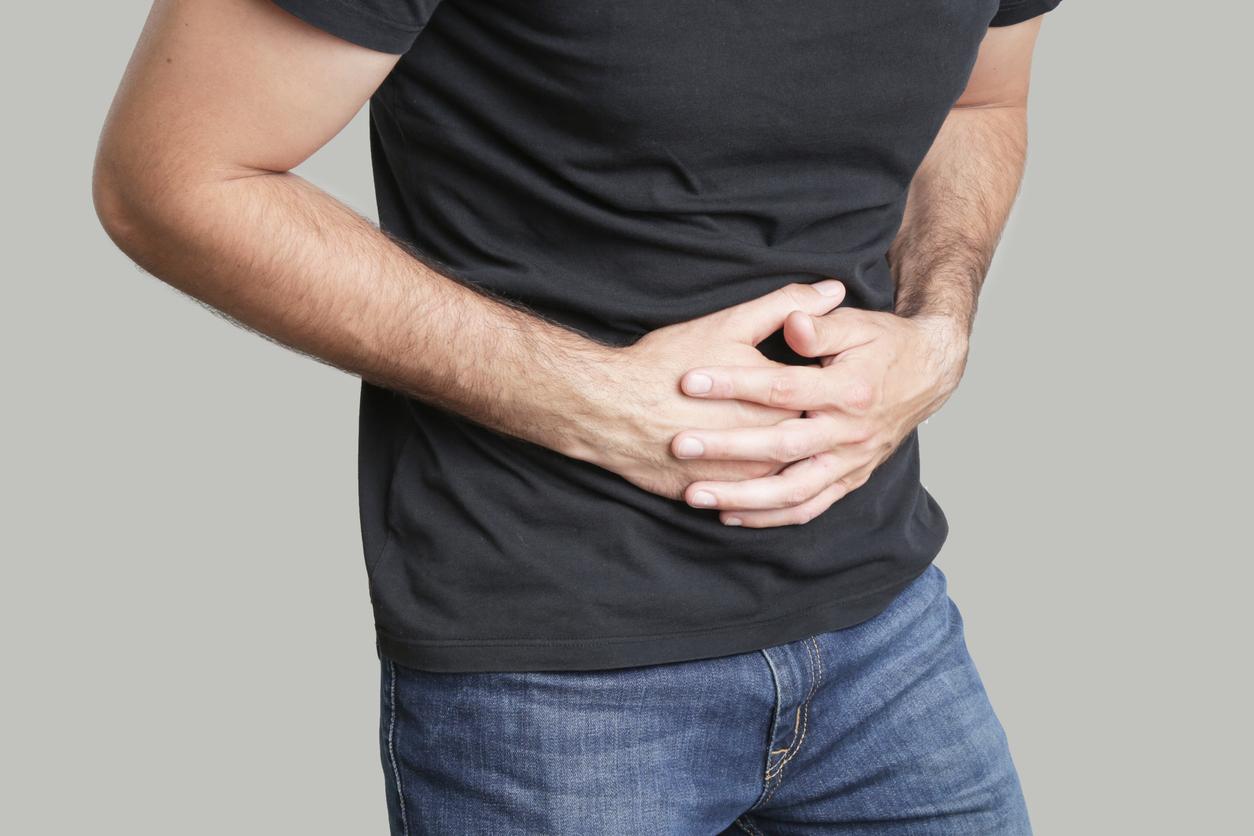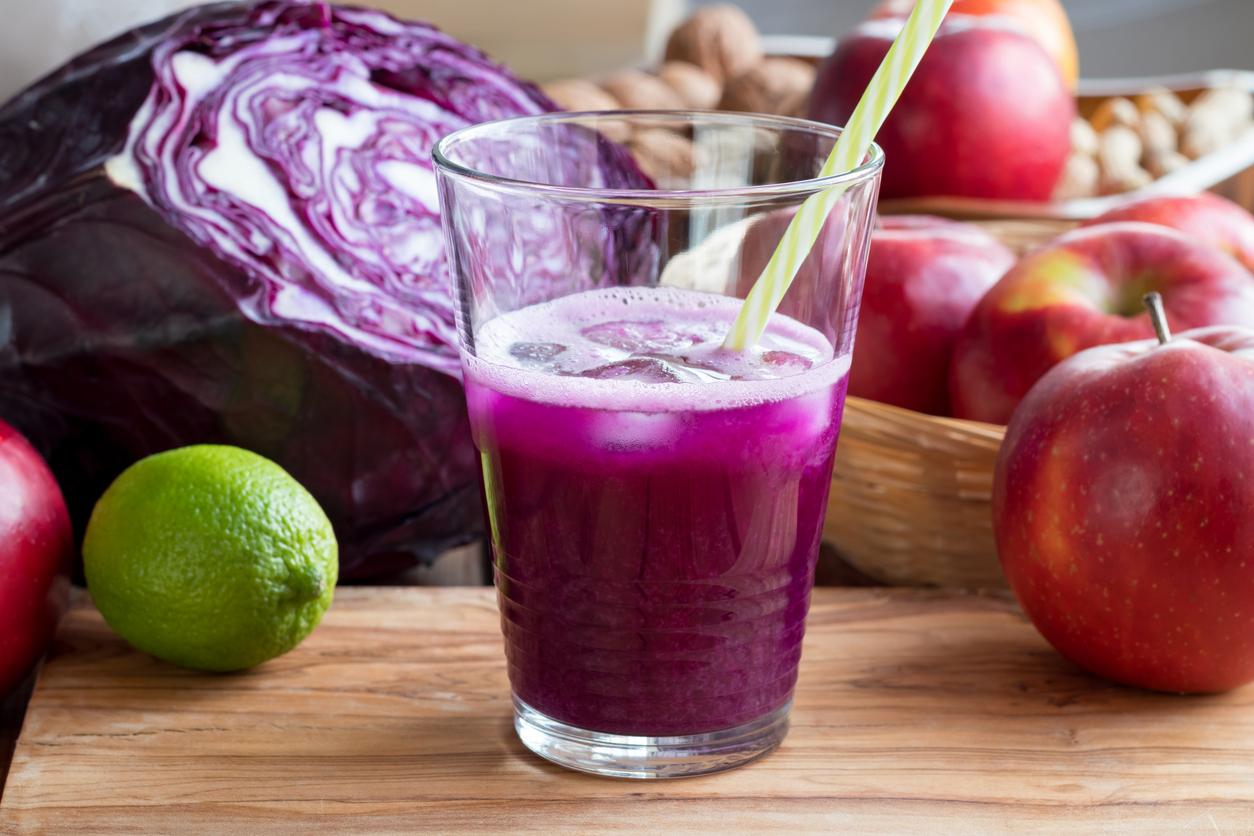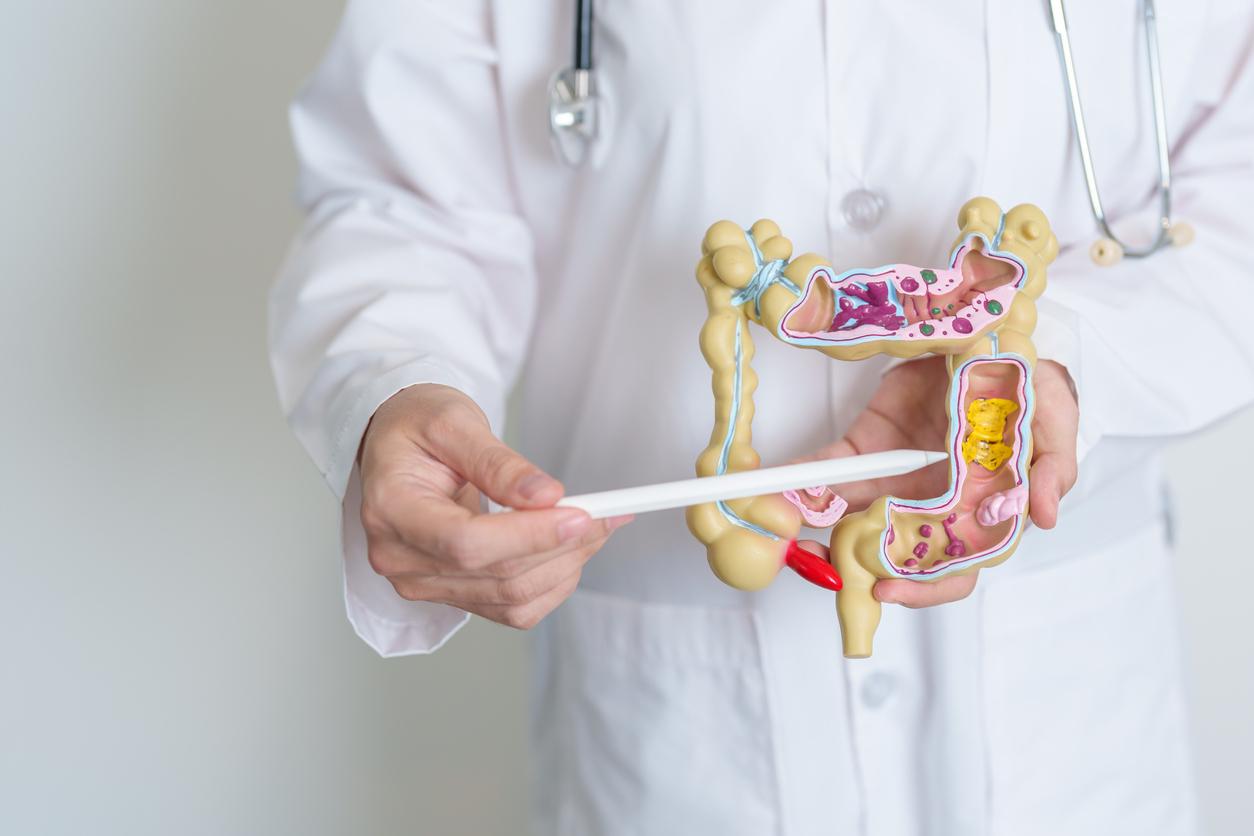Two studies offer encouraging results for people with inflammatory bowel disease (IBD), and in particular Crohn’s disease.
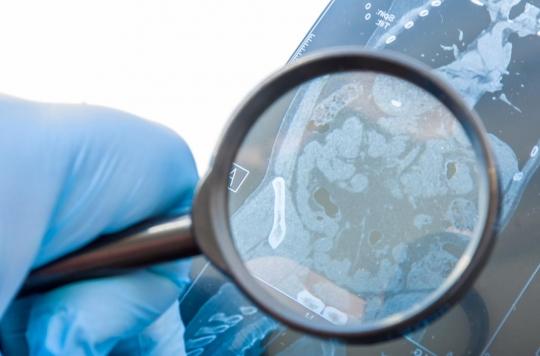
- The first study sheds light on the key role that white blood cells called macrophages may play in repairing damaged gut tissue in patients with chronic inflammatory bowel disease.
- The second points to the weakness of the e‧coli bacterium, involved in the inflammatory process of Crohn’s disease.
Frequent but relatively unknown to the general public, inflammatory bowel disease, or IBD, affects around 200,000 people in France. Consequences of an inadequate immune response against the normal bacteria that form the intestinal microbiota, they are characterized by significant lesions, even fistulas, in the colon and rectum (ulcerative colitis or ulcerative colitis) or the entire digestive tract (Crohn’s disease), causing abdominal pain, severe fatigue and bleeding.
Although the origin of IBD is still largely unknown, research is increasing to better understand these chronic diseases and provide treatments for them. Two studies published in recent days offer encouraging therapeutic prospects.
Repair damaged intestinal tissue
The first, conducted by researchers from KU Leuven and Seoul National University (South Korea), and published in the scientific journal gut, points to the essential role played by macrophages in the repair of damaged intestinal tissue. These white blood cells play various roles in inflammation and tissue repair: they consume foreign bodies, remove debris from damaged cells and release substances that participate in the tissue repair process.
“Our idea is that the migration of macrophages to damaged tissues in IBD is essential to stimulate their healing”says Professor Gianluca Matteoli, immunologist at the Center for Translational Research in Gastrointestinal Disorders (TARGID) at KU Leuven and lead author of the research.
The researchers discovered in the intestines a subset of macrophages responding to prostaglandin E2 (PGE2), an immune system molecule involved in tissue regeneration. They found that patients with acute IBD had a lower amount of these beneficial cells, while their amount increased in patients in remission. “This suggests that they are part of the repair process”advances Professor Matteoli.
To test their hypothesis, the researchers used a mouse model suffering from ulcerative colitis. The number of prostaglandin-sensitive macrophages was lower in the model than in healthy mice. They found, however, that if PGE2 levels increased, the few sensitive macrophages present reacted, releasing a substance which in turn stimulated tissue regeneration.
On the other hand, if the PGE2 receptors of the macrophages were neutralized, the level of tissue regeneration decreased. “We already knew that prostaglandins were important in inducing tissue cell proliferation, but this study shows that they are also important in controlling the inflammatory effect, thereby moving the organism from the acute stage where inflammation dominates to the repairer”emphasizes Professor Matteoli, who now hopes that this research will lead to new treatments that can stimulate the repair of damaged tissue.
Targeting the “Achilles heel” of a bacterium implicated in Crohn’s disease
Posted in Cell Host and Microbe, the second study shed light on the “Achilles heel” of a type of gut bacteria, Escherichia coli (e‧coli), that causes intestinal inflammation in patients with Crohn’s disease.
“The study reveals a weak point in the bacteria that can be targeted therapeutically,” says lead author Dr. Randy Longman, associate professor of medicine in the division of gastroenterology and hepatology and director of the Jill Roberts Center. for inflammatory bowel disease at Weill Cornell Medicine and NewYork-Presbyterian.
This “Achilles heel” is actually a metabolite produced by the bacteria e‧coli and which interacts with cells of the immune system in the wall of the intestine, triggering inflammation. By interfering with this process, it is possible to alleviate the intestinal inflammation of Crohn’s disease, say the researchers, who tested their approach on mice.
To find this “Achilles heel”, the researchers targeted a process that the bacteria e.coli uses to grow. This is 1,2-propanediol, a byproduct of the fermentation of sugar in the intestine. When e.coli converts 1,2-propanediol, it triggers an inflammation process.
By genetically modifying e.coli so that it cannot convert 1,2-propanediol, the researchers found that the amount of sugar in the intestine decreases, which reduces inflammation.
“Altering a metabolic pathway in one type of bacteria can have a big impact on gut inflammation”and in particular to better treatments for Crohn’s disease, says Dr. Monica Viladomiu, co-author of the study.

.







